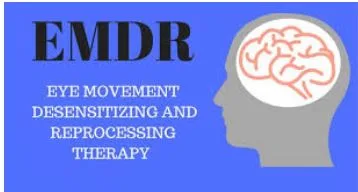The Role of Clinical Nutrition Education in Managing Chronic Diseases
Clinical nutrition education has become an essential part of modern healthcare, offering strategies to improve quality of life and reduce the burden of chronic diseases. With chronic illnesses such as diabetes, cardiovascular disease, obesity, and gastrointestinal disorders rising globally, healthcare systems increasingly recognize the need for skilled professionals trained in nutrition science. A structured education in clinical nutrition prepares future practitioners to combine advanced knowledge of physiology, metabolism, and therapeutic diet planning with hands-on patient care. Through this blend of science and practice, graduates contribute significantly to disease prevention, symptom management, and long-term recovery strategies.
Understanding the Link Between Nutrition and Chronic Disease
Nutrition is central to human health, influencing every physiological system. Poor dietary habits have been directly associated with higher risks of chronic conditions such as hypertension, type 2 diabetes, and coronary artery disease. For example, excess consumption of processed foods high in sodium, sugar, and unhealthy fats can lead to obesity, insulin resistance, and cardiovascular complications. Clinical nutrition education equips students with the knowledge to identify these risk factors and develop tailored dietary strategies to reduce them.
Students learn to analyze nutritional patterns, biochemical markers, and medical histories, linking them to specific disease risks. This foundation allows them to recommend interventions such as low-sodium diets for patients with hypertension or carbohydrate-controlled meal plans for individuals with diabetes. These skills not only manage disease progression but also improve patient outcomes through sustainable lifestyle modifications.
Core Educational Components of Clinical Nutrition
A strong clinical nutrition education program is built around scientific and practical pillars. Coursework typically covers anatomy, physiology, biochemistry, nutritional assessment, diet therapy, and counseling strategies. Students develop expertise in evaluating nutrient needs and applying evidence-based guidelines in clinical settings.
Advanced subjects like medical nutrition therapy play a crucial role in chronic disease management. For example, learners study how specific diets—such as the DASH diet for hypertension or Mediterranean-style eating for heart disease—are applied to individual patients. Furthermore, education emphasizes emerging areas such as nutrigenomics, where genetic information may guide tailored nutrition plans.
Laboratory experiences and case studies enhance the curriculum, giving students opportunities to evaluate food composition, monitor lab markers, and analyze dietary intake data. This scientific knowledge lays the groundwork for applying nutrition strategies in real-world healthcare environments.
Application of Clinical Nutrition in Diabetes Management
Diabetes is one of the most prevalent chronic diseases worldwide, and clinical nutrition is a frontline approach to its management. Education in this field trains students to design meal plans that stabilize blood glucose levels, promote healthy weight, and reduce complications.
Students learn carbohydrate counting techniques, the glycemic index concept, and the role of fiber in slowing glucose absorption. They are also taught to adapt nutrition plans to the individual’s lifestyle, cultural preferences, and medical treatment. For instance, incorporating balanced carbohydrate distribution throughout the day can complement medication regimens, resulting in improved glycemic control.
Additionally, clinical nutrition education emphasizes preventive measures, highlighting how early interventions through diet and weight management can delay or prevent type 2 diabetes in high-risk populations. This dual focus on treatment and prevention underscores the broad utility of nutrition in addressing chronic illnesses.
Cardiovascular Disease and Nutrition Education
Cardiovascular disease remains a leading cause of death globally, and nutrition is a critical component of both prevention and treatment. Clinical nutrition education addresses the role of fats, cholesterol, sodium, and overall dietary patterns in heart health.
Students learn how to guide patients toward heart-healthy diets that emphasize fruits, vegetables, whole grains, lean proteins, and healthy fats. Practical education also includes training on how to reduce saturated and trans fats while promoting omega-3 fatty acids. These strategies lower LDL cholesterol and support vascular health.
Beyond food choices, education programs stress the importance of patient counseling to ensure adherence to long-term dietary changes. By combining medical knowledge with communication skills, graduates are well prepared to help patients integrate nutrition into their overall cardiovascular treatment plan.
Addressing Obesity Through Clinical Nutrition
Obesity is both a chronic disease and a risk factor for multiple conditions. Clinical nutrition education equips professionals with tools to address this complex challenge. Students learn about energy balance, metabolism, appetite regulation, and behavioral strategies for weight loss.
They are trained in developing individualized weight management plans that prioritize sustainable changes over restrictive dieting. For example, incorporating portion control, balanced macronutrient distribution, and behavior modification techniques into nutrition counseling helps patients achieve realistic goals.
Furthermore, education emphasizes the psychological aspects of obesity management, teaching students to support patients who may struggle with motivation or setbacks. This holistic approach enhances long-term weight control and reduces the likelihood of associated diseases.
Nutrition and Gastrointestinal Disorders
Clinical nutrition education also prepares students to manage conditions affecting the digestive system, including celiac disease, inflammatory bowel disease, and irritable bowel syndrome. Specialized training helps students understand how certain foods and nutrients impact gut function and overall health.
Dietary interventions such as gluten-free diets, low-FODMAP protocols, and fiber management strategies are studied in depth. Students learn to tailor these diets to patients’ unique needs while monitoring for nutrient deficiencies that may arise due to dietary restrictions. This skill set is vital for ensuring that patients receive both symptom relief and adequate nutrition.
The Role of Clinical Training and Internships
While classroom instruction provides theoretical knowledge, clinical rotations and internships give students practical experience. During these placements, students work under supervision in hospitals, outpatient clinics, and community health settings. They apply dietary assessment tools, counsel patients, and collaborate with physicians and other healthcare professionals.
Through real-world practice, students gain confidence in handling complex cases. For instance, they may work with patients managing multiple chronic conditions, learning to prioritize nutrition interventions that support overall health. These experiences reinforce the role of clinical nutritionists as integral members of multidisciplinary care teams.
Research and Evidence-Based Practice
An essential component of clinical nutrition education is the emphasis on research and evidence-based practice. Students are trained to critically evaluate scientific literature, understand emerging trends, and apply validated knowledge in patient care.
Research skills enable future practitioners to stay updated on new dietary approaches and innovations in chronic disease management. This continual learning process ensures that clinical nutrition strategies remain relevant and effective in a rapidly evolving healthcare landscape.
Lifelong Learning and Professional Development
The field of clinical nutrition is dynamic, requiring ongoing professional development. Graduates are encouraged to pursue certifications, attend workshops, and engage in continuing education. This commitment to lifelong learning allows practitioners to refine their skills, adapt to new guidelines, and maintain high standards of care.
Institutions such as UNT Health Fort Worth highlight this philosophy, standing on three pillars—Health Education, Health Research, and Health Care. This model reinforces the idea that nutrition professionals must continually integrate education, research, and patient care throughout their careers.
Patient Education and Empowerment
Clinical nutrition education emphasizes the importance of patient empowerment. Teaching patients how to make informed food choices and understand their health conditions is a vital skill for practitioners. By promoting patient involvement, nutrition professionals foster long-term adherence to dietary changes.
Practical education focuses on communication strategies, cultural sensitivity, and motivational interviewing, ensuring that patients feel supported and understood throughout their health journey. This patient-centered approach significantly enhances chronic disease outcomes.
Conclusion
Clinical nutrition education is central to modern healthcare, offering powerful tools to prevent, manage, and even reverse aspects of chronic diseases. From diabetes and cardiovascular conditions to obesity and gastrointestinal disorders, nutrition-trained professionals play a crucial role in improving patient outcomes. Through comprehensive coursework, clinical training, and research, students are prepared to address complex health challenges with confidence and expertise.
By focusing on both scientific knowledge and practical skills, clinical nutrition education develops professionals who can lead the fight against chronic disease. The integration of evidence-based dietary strategies, patient counseling, and lifelong learning ensures that nutrition continues to be a cornerstone of effective healthcare delivery.





